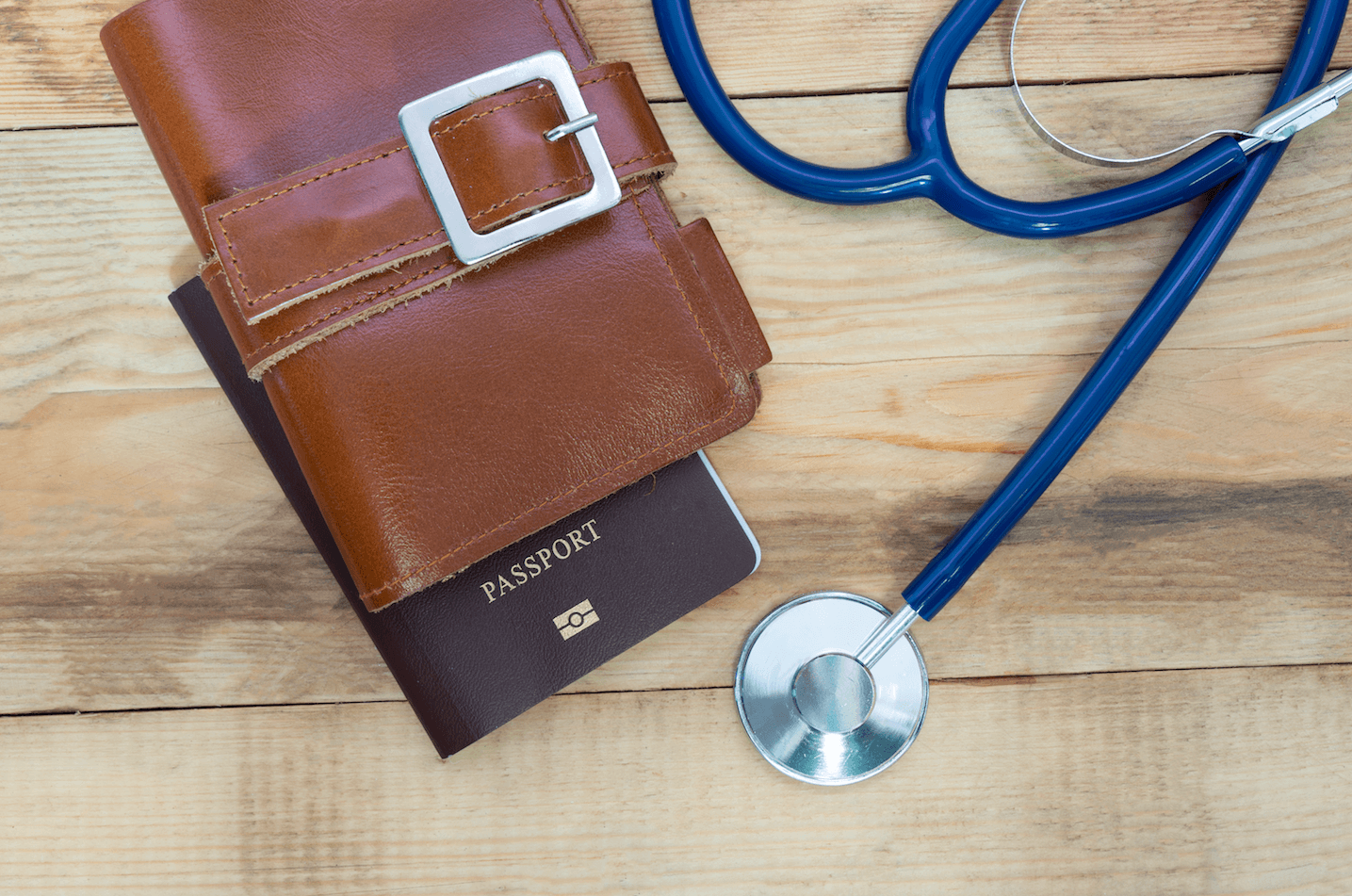- Category: Articles About Weight Loss Procedures
Fear is an integral part of human life. If you don’t have an iota of that, it is pertinent you go to a psychological class.

That’s humor by the way, and that is exactly what we want you to feel after reading this article. We will love to see your face lit up with smiles (though we can’t see it over the air – come over to our clinic let’s see). It is important to let out the pent up feelings and notions you heard bariatric surgery abroad.
The procedure does not get less risky when you chose to stay away from it. It does not lead you down the path of body destruction either. Weight loss surgery is a positive life-changing tool that helps you lead a normal lifestyle.
Why are you afraid about Bariatric Surgery?
It is not out of place to have doubts about a procedure that is new to you. It may seem alien but the abundance of positive testimonies is an indication that the procedure is effective. It is sad that obese people will schedule surgical sessions only to back down because of the perceptions out there.
Just like every other aspect of human life, there are underlying risks in everything we do. It takes resilient individuals to complete without doubts. That is what we want you to have. Develop a firm belief in bariatric surgery and develop a thick skin over adverse notions about the procedure.
Can you define your fear?
Bariatric surgery means different things to many people. To some, it is the fastest process to lose weight. To some others, the procedure is less risky when compared to the adverse effects of obesity-related diseases. Some other patients hold the notion that it is a “bitter-sweet experience”. This means that it will work for you but there are challenges on the way. These are the fears of different bariatric patients. What fear do you nurse about the procedure?
We present to you, the five (5) most common fears that hold the center stage in the lives of individuals getting ready for weight loss surgery. It is pertinent that you take these as factors that you will encounter along the process. The supposed negativity in them is not close to the better lifestyle that awaits you after bariatric surgery abroad.
1. Physical Changes
You may not be conscious of the number of calories you consume. However, you tend to take notice when extra flesh bulges out from the stomach and start dropping under the arm. Humans are very conscious of body changes. This forms the basis of the fear that is common among bariatric patients.
It’s not only the body that changes but the hair also. Thus, patients are afraid of possible outcomes of bariatric surgery abroad. This is quite challenging because some factors are responsible for this. Let us look at them and discover why physical changes should be a thing of concern.
The Public’s Perception
It is a common fact that bariatric patients come under heavy assaults because of their body mass. There are jeers here and there and rejection by friends. These factors combine to trigger depression on patients. Some may consider suicide as the last resort to get away from outright rejection. Therefore, it brings about fears when they realize that bodily changes are common with the procedure.
It is not out of place to bother about the “new body”. Patients tend to ask congruent questions with hopes of getting soothing answers. It all boils down to their acceptance in the community after bariatric surgery abroad. Therefore, it is important to assure patients of the hourglass figure that awaits them after the surgery. With this in mind, they get motivated to undergo the surgery.
Self-Acceptance
One other reason, which is the most important, is the patient’s self-acceptance. Will you be ready to accept your new body shape after weight loss surgery? Can you literally “forgive yourself” for stepping down from a large body mass to a slim figure.
It is important to understand the psyche of patients and take them through the aftermath of the surgery. This way, they can decide to continue with the procedure or not. This is much better than the loathing feeling they tend to develop after the procedure. In that regard, they literally regret undergoing the surgery in the first place. Therefore, relevant information should be available to patients before the surgery, because this helps them to make informed decisions about the whole affair.
Hair Loss
Even though studies confirm iron and protein as nutritional factors for hair loss control, many patients find it hard to control hair loss after the surgery. Prospective patients regard this as a challenge and get jittery to proceed with bariatric surgery abroad.
Weight Regain
It hurts to see your efforts go down the drain. It is possible to regain some amounts of the lost weight after an interval of five (5) years. Note that regaining the weight is because of patients’ inability to stick to the post-operative guidelines
There is a way to get around this. With the intake of healthy meals, routine exercises and intake of nutritional supplements, you can keep off the weight for a longer period.
2. Changes in Lifestyle
Note that bariatric surgery is a major tool for getting rid of excess weight. On the contrary, it can be a “source of enmity”. This may seem confusing but here is the idea. Friends and family tend to be accommodative in the early stages of obesity. However, degeneration may trigger obesity-related diseases, such as Type 2 diabetes and heart diseases.
Now, many friends will desert you. To keep the remaining ally by your side, it is pertinent to eat and drink as much as you want. However, the outcome of these actions often results in comorbidities (obesity-related diseases). More friends tend to run away and the family will keep a distance.
However, bariatric surgery may deepen the differences and fan the embers of discord. The few friends of yours may not be happy with your new lifestyle, especially when you eat and drink little when hanging out. Therefore, the future literally seems bleak because patients have to conform to different lifestyle changes.
Be Wary of Meals
It is important to take a decision on meal intake. This will make the post-op diets a walkover for you. Nevertheless, pay serious attention to the kind of meals you consume. This is a headache for patients who are yet to master the techniques of sorting food items. The common problem is the selection of food items that are not high in carbohydrates but have enough proteins. There is also the meal preparation and consumption to consider.
All these factors contribute to patients’ fear of weight loss surgery. The way to get out of this quagmire is consulting your doctor when issues arise. Remember to avoid past eating plans. This caused obesity in the first place and can trigger weight regain after bariatric surgery abroad.

If you're interested in learning more about bariatric surgery abroad from real patients who have experienced weight loss surgery with Weight Loss Riga, join our Patient Community on Facebook!
3. Risks of Operation
Suffice us to say that many patients are not afraid of the procedure. They are not superhuman to do this. When two risk factors come your way, it is only wise to pick one that poses less trouble. That scenario plays out here.
It is very likely for bariatric patients to get nervous about the aftermath of the surgery than the procedure itself. This is because they can endure the pains during the surgery but may not extend the same act of bravery when the procedure is over.
It is worth mentioning that inherent risks at this stage boil down to the methodology of the procedure. Laparoscopic operations are in vogue, which reduces the chances of complications. Thus, you need not worry about the surgery going wrong. Apart from the skilled surgeons and the excellent bariatric facilities, you can be sure that the laparoscopic bariatric procedure got you covered.
Benefits of Laparoscopic Procedures
Note that this has massive adoptions in the bariatric field. It is not only easy to perform but also has fewer risks. Here are some of the benefits of this procedure:
• Reduced Complications
Weight loss surgery has underlying risks, which often start from the operation room. The Laparoscopic procedure reduces this occurrence. The surgeon makes three incisions on the abdomen, through which he performs the surgery. These small-sized holes reduce the occurrence of infections during and after the surgery.
• Faster Procedures
Patients often get jittery when there is an elongation in the hospital stay. This to them implies hitches that can translate to complications. Nevertheless, the Laparoscopic approach facilitates the process. Hence, you can be homebound within 3-4 days after the surgery.
4. Complications of General Anesthesia
It is normal to regard anesthesia as a sleep-inducing medication before major surgery. It is also important to note that the scope is not limited to the operation room. There are many approaches to this, which bariatric patients have to pass before the surgery. We understand how painful a “live bariatric session” can be and the effects it may have on the patient. Thus, there is a need to apply anesthesia at different stages to reduce the underlying pains and discomforts. Below are some approaches to this:
• Pre-Weight Loss Plan
This is common among patients with morbid obesity. It is vital to shed off some kilos of flesh before the surgery. Approaches such as exercising and dieting are viable ways to cut down on body mass. A pre-weight loss plan is a great tool in the swift reduction of the body mass index (BMI) during bariatric surgery.
• 24-Hour Food Avoidance
In this case, there will be a complete clampdown in food intake. The idea is to keep the stomach “empty” which allow for swiftness in the surgery.
• Anesthetics Application
Patients have to take injected pain-relievers/sleep-inducing drugs. This reduces gastric acidity and chances of bleeding. Anesthesia can be a source of pain relief when done the right way.
Downsides to General Anesthesia
There is a growing feeling of disgust for general anesthesia among bariatric patients. They are afraid of going through this. Even though it is good, there is are reasons why patients want to stay away from it.
• Fear of General Anesthesia
This approach is perfect for people that have not had any form of surgery. For a patient that may be seeking reversal for a previous bariatric surgery general anesthesia may not be a good option. Thus, it has few acceptances among people that had surgeries in the past.
• Fear of not waking up from Anesthesia
This fear is common among patients that are considering bariatric surgery abroad. There is a general belief that they won’t wake up from anesthesia after the procedure. This triggers its boycott. Because this is an integral part of weight loss surgery, patients tend to avoid the procedure in entirety, because they cannot cope with the “risks of anesthesia”.
5. Would I die?
It is important to weigh choices when considering the surgery. It is ironical that weight loss surgery, which is a life-changing tool, can cause death. Always remember that this is a surgical operation. Therefore, it is not free of risks.
On the contrary, it cannot cause deaths. Thus, patients can be sure of coming out alive from the operating room. Nevertheless, here are some facts that you must understand about health after bariatric surgery abroad.
• Patients don’t die during the procedure
The Laparoscopic approach to weight loss surgery reduced the chances of health-threatening factors during the surgery. Therefore, patients maintain good health throughout the procedure.
• Patients die from complications
Complications are the source of mortality rates (deaths) after the procedure. It is worth mentioning once more that bariatric surgery is not entirely risk-free. There are underlying factors that can pose threats after the procedure.
Note that this cuts across different procedures and does not center on specific surgeries.
There is no need to pay much attention to the risk factors. Available figures posit that the average mortality rate after bariatric surgery is 0.5%. This benchmark is impressive considering the high death tolls on other surgical operations.
Note: The mortality rate has chances of reversal if the patient is quick to take necessary action.
Fears are Common
It is common to be skeptical about issues that are alien. Even though bariatric surgery is popular and evidence of its weight loss capabilities is available, many patients are yet to welcome it with open arms. The fears in the list are valid but they do not threaten the healthy lifestyle that awaits you after bariatric surgery abroad.
Do you have other fears and want to talk about it? We at Weight Loss Riga look forward to entertaining and offering solutions to them. There is no gainsaying the fact that you stand a good chance of living a healthy lifestyle after the procedure. Above all, it is important to discard fear and put on confidence.





